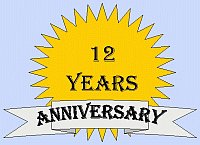 Bech is a recurring character in Updike's short stories. These short stories have been gathered together into three books: Bech: A Book (1970), Bech Is Back (1982), and Bech at Bay (1998). The Complete Henry Bech (2001) contains all of Updike's Bech short stories, including His Oeuvre (2000). The story of Bech is decidedly lighter than of Rabbit. Henry Bech is a notably unproductive writer living his life within and around literary Manhattan. In some ways he functions as Updike's fictional alter ego, a Jewish writer with a weakness for women and literary awards, and he allows Updike to comfortably express his
Bech is a recurring character in Updike's short stories. These short stories have been gathered together into three books: Bech: A Book (1970), Bech Is Back (1982), and Bech at Bay (1998). The Complete Henry Bech (2001) contains all of Updike's Bech short stories, including His Oeuvre (2000). The story of Bech is decidedly lighter than of Rabbit. Henry Bech is a notably unproductive writer living his life within and around literary Manhattan. In some ways he functions as Updike's fictional alter ego, a Jewish writer with a weakness for women and literary awards, and he allows Updike to comfortably express his  sarcastic and sometimes caustic insights on writers and the writing life. When Bech is initially introduced, Updike provided him with a back-story in which Bech has had published two well-written novels and a collection of essays as well as his latest overblown and overly complex novel. Updike, on the other hand, is considered one of the masters of contemporary American fiction and his writing has won the Pulitzer Prize, the National Book Award, the American Book Award, and the National Book Critics Circle Award.
sarcastic and sometimes caustic insights on writers and the writing life. When Bech is initially introduced, Updike provided him with a back-story in which Bech has had published two well-written novels and a collection of essays as well as his latest overblown and overly complex novel. Updike, on the other hand, is considered one of the masters of contemporary American fiction and his writing has won the Pulitzer Prize, the National Book Award, the American Book Award, and the National Book Critics Circle Award.
Bech: A Book (1970)
This book features Updike's most irresistible hero since Rabbit Angstrom, Henry Bech, who just happens to be an author famous for his writer's block. This is John Updike's original volume of stories about his alter ego, Bech, who in many ways is as unlike Updike as it's possible to be. Bech is short, unmarried, and a failure who suffers from writer's block as well as being a Jew adrift in the predominantly gentile New York City literary world. The stories in this book relate Bech's adventures touring Russia and other Communist-bloc nations during the height of the Cold War. As he roams from one adventure to the next, he views life with a blend of wonder and cynicism that is humorous yet painfully familiar and recognizably true.
 Bech is Back (1982)
Bech is Back (1982)In this collection of stories, Updike's 'renowned' Henry Bech is now fifty years old. Bech, the celebrated author of his first and only novel Travel Light, has been scrutinized, canonized and vilified by reviewers, academics, critics and readers across the world. He sets out on some more traveling, this time to several third-world countries. He also marries, divorces, falls in love, and writes a book. Suffering from temporary impotence and not-so-temporary writer's block, Bech finds renewed fame when he returns to his native America where his new book, Think Big, has become an all-time bestselling blockbuster. As neurotic as ever, Bech is completely unnerved by his publishing success.
 Bech at Bay (1998)
Bech at Bay (1998)
This is another of Updike's collection of short stories featuring his recurring character, Henry Bech, a Jewish American novelist who Updike sends on a trip through the writer's life. By this time in his life Bech, the "semi-obscure" literary writer, is "at bay" -- attacked by fellow writers, sued for libel, derided by critics, and consumed by worry about his place in the literary pantheon. Bech is getting on in years, and although age has not reduced his considerable sexual appetites or his cantankerous charms, he is uncomfortably aware of his own mortality. In the first episode of the book, during a visit to pre-perestroika Czechoslovakia, the "semi-obscure American author" is taken to view Kafka's grave, and the sight gives him the willies. The book is made up of five interrelated sections that move backward and forward through time, from 1986, when the 63-year-old Bech is again in Prague, to 1999, when he accepts the Nobel Prize with his eight-month-old daughter in his arms. Through it all, Bech pursues his craft, an assortment of women, vengeance and peace of mind, veering between misery and elation, bathing in self-doubt or preening egotistically. Updike uses Bech's adventures to reveal both the factionalism within the 1990s literary community as well satirizing the backbiting and jealousy of the Manhattan intelligentsia. Bech's Yiddish vocabulary, self-deprecation, irony, guilt and a sense of being an outsider in society despite his acclaim make him both entertaining and in some ways more fantastically real. One notable section of the book, Bech Noir, has Bech, with the help of his young lover and a computer, systematically doing away with the critics who have disparaged his work. In Bech Presides, Updike has Bech serve a stint as president of an august literary society called the Forty. Updike then implants recognizable traits of living writers in the members of the Forty, all part of a masterful satire on the contemporary writer's life.
 His Oeuvre (2000)
His Oeuvre (2000)
(from The Complete Henry Bech, containing all of the Bech short stories)
This book, a collection of short stories, is probably best described as an arch portrait of the literary life in America. The main character is Updike's comfortably familiar Henry Bech. This collection features a final, series-capping story, His Oeuvre. They cast an affectionate eye on Bech, the famously unproductive Jewish-American writer, offering up a stream of wit, whimsy, and pungency. From his birth in 1923 to his belated paternity and public apotheosis as a spry septuagenarian in 1999, Bech plugs away, globetrotting in the company of foreign dignitaries one day and schlepping in tattered tweeds on the college lecture circuit the next. By turns cynical and naive, wry and avuncular, and always amorous, he is Updike’s most endearing confection -- a Lothario, a curmudgeon, and a winsome literary icon all in one.
See also:
John Updike, part 1; Tuesday, December 11, 2007
Home
Older Article: Michael Hague part 1, The Illustrated Children's Classics

John Updike part 2, The Bech Books by Steven Williams is licensed under a Creative Commons Attribution-Noncommercial-No Derivative Works 3.0 United States License.
Permissions beyond the scope of this license may be available by contacting Steven Williams through Bookmarc's BookmarcsOnline.








